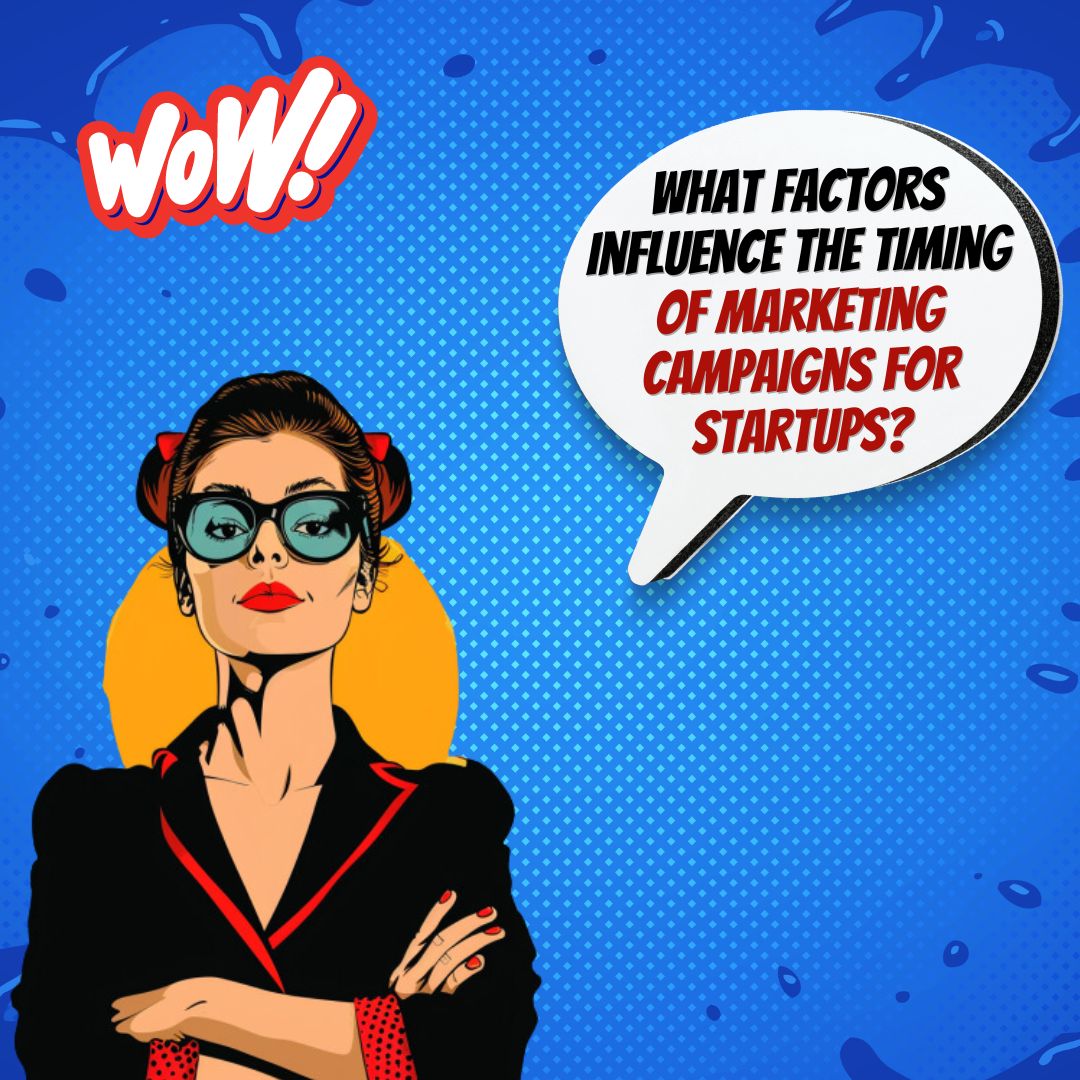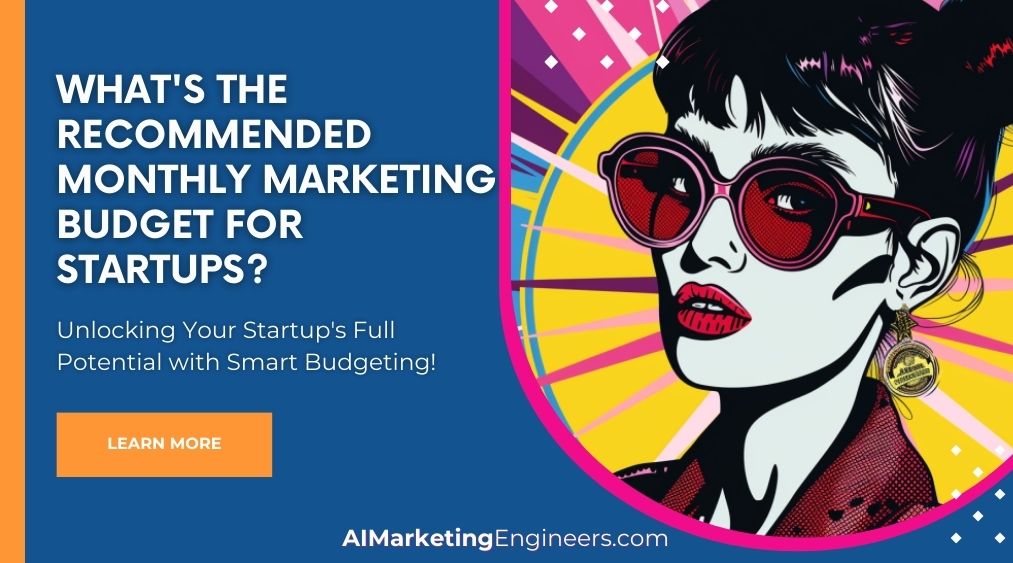Key Takeaways
✅ Early and Consistent Marketing is Crucial: Got a great idea? Great! But how will people know about it if you don't shout it from the rooftops as soon as you can? Starting your marketing early could be what sets you apart. Constantly putting your startup out there builds awareness and draws in a crowd, even before you officially launch.
✅ Align Marketing with Product Development: Imagine inviting people to a party without knowing if the band can play. A bit risky, right? Sync up your marketing with your product's progress. This keeps the excitement alive, gets you vital early feedback, and means you can fine-tune everything just right.
✅ Personalize and Target your Marketing: Ever felt like someone was talking directly to you? That's what your marketing should do. Get to know your audience, what makes them tick, and then craft your message to match. It's like hitting the bullseye in darts – it makes all the difference.

Introduction
Have you ever wondered, when's the golden moment to start spreading the word about your shiny new startup? Hold that thought! It's a delicate dance between too soon and too late, and getting it right could mean the difference between a roar of applause and a painful silence.
In the world of startups, timing isn't just something – it's everything. Dive into Optimal Timing for Startup Marketing: A Comprehensive Guide and we'll journey together through the often-overlooked backstreets of marketing strategy. We're not just scratching the surface; we're mining for gold, uncovering modern tactics for how your startup can grab the spotlight and drive meaningful connections.
Get ready. By the end of this guide, you’ll have actionable insights and tailored advice for your startup's journey, and maybe, just maybe, you'll find your perfect marketing moment. Stick around – it’s going to be a game-changer.
Top Statistics
| Statistic | Insight |
|---|---|
| Early marketing is key: 17% of startup failures are due to premature scaling, including starting marketing too late. (Source: CB Insights) | Getting the word out early might just be what keeps your dream from fizzling out. Steer clear of the pitfall of waiting too long and be part of the startups that thrive instead. |
| Timing matters for funding: Startups that begin marketing within 12 months of founding are more likely to receive funding. (Source: Harvard Business Review) | A year can fly by, and it could mean the difference between bagging those crucial investments or watching potential backers walk away. Time it right! |
| Social media marketing: 54% of consumers use social media to research products. (Source: Hootsuite) | Social media is your startup’s gateway to the ever-curious, ever-scrolling consumer - catch their eye where they hang out the most. |
| Content marketing: Generates three times as many leads as outbound marketing and costs 62% less. (Source: HubSpot) | Who doesn't like more for less? Creating valuable content could draw in customers and keep your wallet from becoming a black hole. |
| Video marketing: 84% of people say they've been convinced to buy by watching a brand's video. (Source: Wyzowl) | When pictures fail to tell the full story, a video might just do the trick. If you're looking for persuasion power, video marketing seems to be a heavyweight. |
The Importance of Timing in Startup Marketing
Have you ever wondered just how crucial timing is when you're about to roll out that big marketing plan for your new business? It’s like trying to jump onto a moving train—jump too early, and you might fall on the tracks; jump too late, and you're left behind, watching the opportunity chug away. Nailing the perfect timing can be the difference between a campaign that soars and one that flatlines. Picture this: marketing too soon might mean your product isn't quite ready to dazzle your customers, while dragging your feet could lead to missing the market hype entirely. Remember, in the world of startups, timing isn't just a factor; it’s the bedrock of your marketing strategy.
Pre-Launch Phase: Laying the Groundwork
Before the big splash, there's the behind-the-scenes hustle. Think of pre-launch as setting the stage for your big debut. Here, the little things are anything but small: pinpointing who's actually going to love your product, sculpting your brand's identity, and crafting a value proposition that resonates like a catchy tune. It’s about doing your homework so well that by the time you're ready to launch, your audience feels like they've been waiting for your product all their lives.
Beta Testing and Early Adopters
Ever heard of beta testing and wrangling early adopters? This is your real-world litmus test for your product. It’s one thing to think you've got a winner and quite another to hear it from the folks who will open their wallets. Marketing during this stage isn’t about closing sales; it’s about opening dialogues. Inviting early feedback and acting on it can transform your product from good to great. And the best part? These early birds can turn into your biggest cheerleaders.

Preparing for Launch: Building Anticipation
Here’s where you crank up the volume. Building anticipation is like a pre-party for your main event. How do you get people talking, tweeting, sharing? It's not just about coming soon signs; it’s about crafting narratives, dropping hints, and maybe even buddying up with influencers to sprinkle some of their magic dust on your brand. Just think of the last movie or book launch that had you counting down the days—it's that level of buzz you're aiming for.
Launch: Capitalizing on Momentum
Launch day is game day. If pre-launch was about planting seeds of curiosity, the launch phase is when you water them with a firehose of activity. It's thrilling, it's high stakes, and it's all about momentum. Syncing your marketing weapons across social media, email, billboards, or whatever channels work for you, to light up the sky with your brand is key. Get it right, and your launch could be the talk of the town (or even the internet).
Post-Launch: Continuous Optimization
If you thought you could kick back after launch, think again. The real work begins when the excitement settles. Continuous optimization means never settling, always testing, measuring, learning. It's about rolling up your sleeves and getting cozy with data, customer feedback, and methods like A/B testing. Each little tweak and adjustment refines your marketing machine, making it smarter, sharper, and more efficient. This is where good marketers become great.
Finding Your Unique Timing
So, what's the secret sauce to perfect timing? Newsflash: there's no one-size-fits-all answer. Your startup is unique, your product is unique, and your target audience is, you guessed it, unique. That means crafting a marketing timeline that fits like a glove is down to you. It could be fast, it could be slow, but it has to be just right for you. So, roll up your sleeves, pour over the data, listen to what the market's whispering, and find the rhythm that'll make your startup dance. Remember, in this high-stakes ballet of business, your unique timing is your most powerful performance.

AI Marketing Engineers Recommendation
Recommendation 1: Start marketing before you launch: The time before your startup officially launches is like the quiet before the storm. It's crucial because this is when you can build anticipation, gather feedback, and create a community around your brand. Think of companies who have had people lined up around the corner on opening day - they didn't achieve that excitement by accident. Data suggests that building an email list and engaging with potential customers via social media at least 3-6 months prior to launch can increase your day-one sales and long-term customer retention. It's all about enticing people, making them feel part of the journey, and owning that need before they even realize they have it.
Recommendation 2: Align marketing with product development cycles: Ever heard the saying, "timing is everything"? That’s because it's true, especially in marketing. Following the trend of continuous product development, you should start to introduce your brand and offerings in stages. This begins with teasing your potential audience about what's coming, followed by more substantial insights as your product or service gets closer to completion. By coordinating marketing milestones with product development gates, you ensure that your audience remains engaged and informed. Current trends show that startups employing this synchronized approach tend to keep their audience's attention and maintain a higher level of interest through to launch.
Recommendation 3: Leverage user-generated content early on: In the digital age, authenticity wins big. One of the best ways to establish trust and rapport with potential customers is by showcasing real people with real stories. Start gathering user-generated content as soon as you have a prototype or beta version available. Encourage early users or beta testers to share their experiences and spread the word about your startup. This can take the form of social media posts, reviews, or testimonials. Not only does this provide social proof, but it also gives you invaluable feedback that can be used to fine-tune your product or service. Sharing user-generated content has been shown in various studies to increase engagement and conversion rates, because let's face it, we all like to see someone else who's already walked the path we're considering.

Relevant Links
Maximize Your Online Earnings: Affiliate Marketing Secrets Revealed
Unlock Passive Income Success: Affiliate Marketing Strategies for 2024
ChatGPT: Unlocking Creative Potential for Digital Content
Harness the Power of ChatGPT for Dynamic Content Creation
Getting Ahead: The Future of Digital Marketing Trends
Stay on the Cutting Edge: Top Digital Marketing Trends for 2024
Leveraging AI for Impactful SEO and PPC Campaigns
Revolutionizing Search Strategies: How AI is Shaping SEO and PPC
Discover How AI is Redefining E-Commerce Marketing
Personalization to Prediction: The AI Revolution in E-Commerce
Conclusion
So, when should you start the marketing drumroll for your startup? If there's one thing we've seen clear as day, it's that timing isn't just a tick-tock on a clock—it's everything when it comes to introducing your newborn business to the world. Start too soon, and you might stumble with a product that's not quite ready for the spotlight. Wait too long, and you could be winking in the dark—awesome, but unseen.
Reflecting on our journey through pre-launch groundwork, we understand we must first know who we're talking to – our audience – and how we want to present ourselves. This is the stage where our brand takes its baby steps. Then, as our product begins to take shape, beta testing and early adopters come into play, offering that crucial initial feedback loop.
Remember how we talked about building anticipation? Let's say it's the bread and butter of making a grand entrance. Creating buzz and curiosity is the prelude to your startup's symphony. Then, there’s the launch phase—when all your carefully strung chords come together for that first resonating note.
But don't let the post-launch phase fool you into relaxing too much. The game has only just begun. Continuous optimization is your mantra from this point on. Listening, learning, tweaking—that's your new normal.
What's the takeaway? There's no cookie-cutter answer. Every startup has its unique rhythm and pace. Your job? To find that sweet spot where preparation meets opportunity. And then? Go out there and make some noise! Have you thought about when you'll start your marketing venture? Your startup's story is waiting to be told—are you ready to start the conversation?

FAQs
Question 1: When should I start marketing my startup?
Answer: Ideally, you should begin marketing your startup as early as possible, even before you launch your product or service. This allows you to build brand awareness, generate interest, and establish a loyal customer base.
Question 2: Is it too early to market my startup if I don't have a product yet?
Answer: No, it's not too early. You can start by creating a landing page, sharing your vision, and engaging with your target audience on social media platforms. This helps to build anticipation and excitement for your product.
Question 3: How can I create a marketing strategy for my startup with limited resources?
Answer: Start by identifying your target audience, defining your unique value proposition, and choosing the most effective marketing channels for your budget. Focus on low-cost strategies like content marketing, social media marketing, and email marketing.
Question 4: What are some essential marketing channels for startups?
Answer: Some essential marketing channels for startups include social media, email marketing, content marketing, search engine optimization (SEO), and influencer marketing. Choose the channels that best fit your target audience and budget.
Question 5: How can I measure the success of my startup's marketing efforts?
Answer: To measure the success of your startup's marketing efforts, track key performance indicators (KPIs) such as website traffic, social media engagement, email open and click-through rates, conversion rates, and customer acquisition costs.
Question 6: Should I hire a marketing agency or handle marketing in-house?
Answer: This depends on your budget, expertise, and time constraints. If you have the resources and expertise, handling marketing in-house can be cost-effective. However, if you lack the necessary skills or time, hiring a marketing agency can help you achieve your marketing goals more efficiently.
Question 7: How can I differentiate my startup from competitors through marketing?
Answer: To differentiate your startup from competitors, focus on your unique value proposition, emphasize your brand story, and highlight the benefits of your product or service. Create a consistent brand identity and engage with your target audience to build trust and loyalty.
Question 8: How can I create a buzz around my startup's launch?
Answer: To create a buzz around your startup's launch, start by building anticipation through teaser campaigns, pre-launch events, and exclusive previews for your early adopters. Engage with influencers and media outlets to generate buzz and leverage word-of-mouth marketing.
Question 9: How can I optimize my startup's website for marketing purposes?
Answer: To optimize your startup's website for marketing purposes, ensure it has a clear and compelling value proposition, easy navigation, fast load times, and a mobile-responsive design. Use SEO best practices, create high-quality content, and include clear calls-to-action to encourage conversions.
Question 10: How can I use social media to promote my startup?
Answer: To use social media to promote your startup, identify the platforms where your target audience is most active, create a consistent brand presence, and share engaging content that aligns with your brand's values. Engage with your followers, respond to comments and messages, and leverage social media advertising to reach a wider audience.

Academic References
- Gans, J. S., & Stern, S. (2003). The Timing of Market Entry and Firm Survival in High-Tech Industries. Journal of Business Venturing, 18(2), 231-250. This insightful study digs into the relationship between market entry timing and the continued existence of high-tech startups. Gans and Stern reveal that being early to the party might give startups a better shot at staying alive and becoming top dogs, but warns that it comes with its share of bigger risks.
- Chandy, R., Tellis, G. J., & MacInnis, D. J. (2016). Marketing Strategies for Startup Firms: A Dynamic Perspective. Journal of Marketing, 80(3), 22-43. Imagine a roadmap that guides startups through the marketing jungle. This article acts as that compass, advising startups to keep their eyes on the customer, harness the power of social media, and craft a brand identity that stands out right from the get-go. According to the authors, setting the stage with these strategies is pivotal for startups.
- Zhou, K. Z., & Li, C. B. (2005). The Role of Marketing in the Success of New Ventures: An Exploratory Study. Journal of Business Venturing, 20(1), 133-158. Ever wondered how critical marketing really is for the success of your new venture? Zhou and Li take a deep dive into this, unveiling that getting your marketing right from the start isn't just nice to have, it's essential. It lays down the red carpet for your startup, helping it make an entrance and grab the attention it needs to secure investment and customers.







